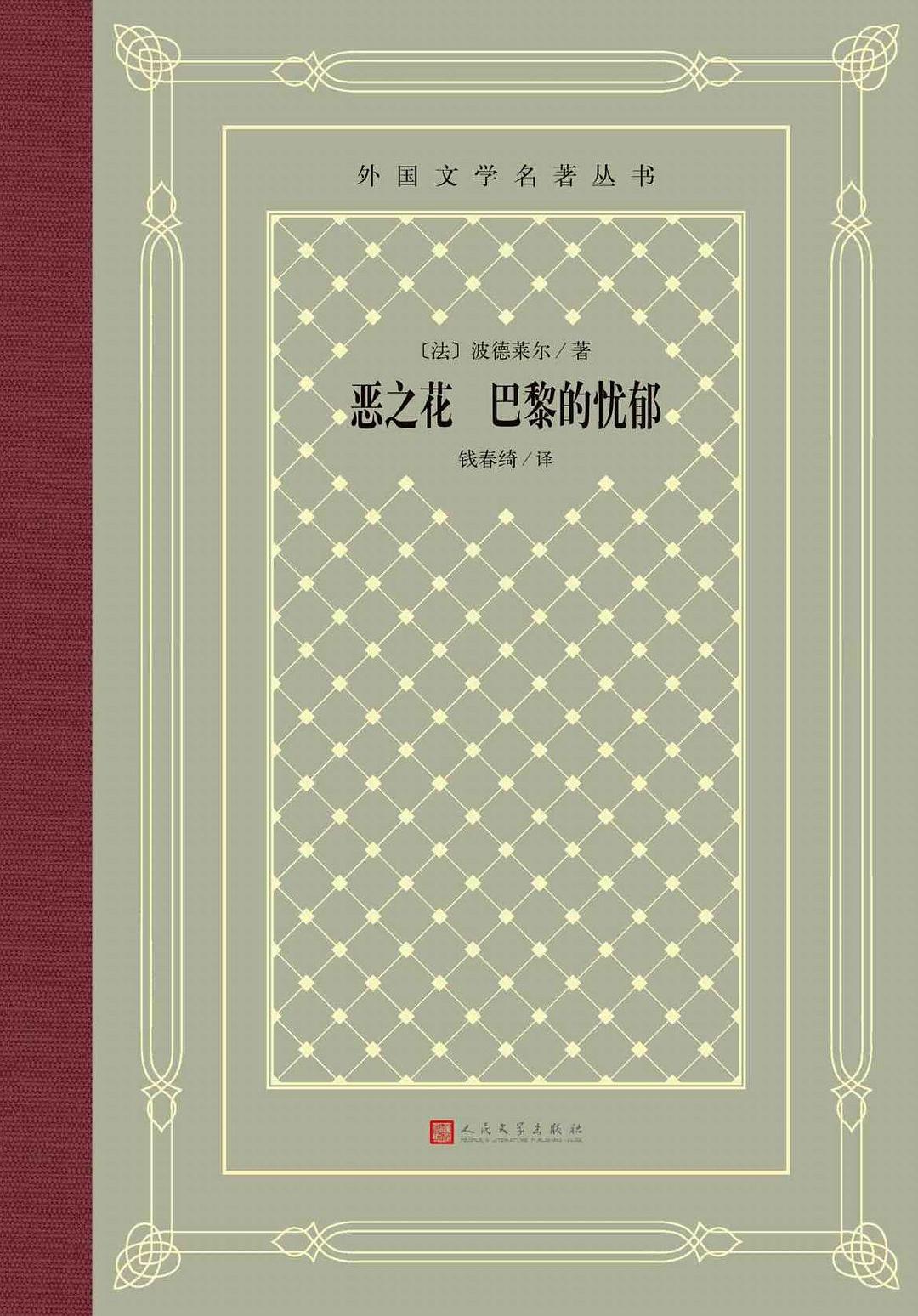WULOLIFE
《恶之花 巴黎的忧郁》作者: [法] 夏尔·波德莱尔 出版社: 人民文学出版社 译者: 钱春绮
《恶之花 巴黎的忧郁》作者: [法] 夏尔·波德莱尔 出版社: 人民文学出版社 译者: 钱春绮
Couldn't load pickup availability
Description
内容简介 · · · · · ·
《恶之花》是法国象征派诗人波德莱尔的成名作和代表作,在世界文学史上占有相当重要的地位。全书分为“忧郁与理想”、“巴黎风光”“酒”“恶之花”“叛逆” “死亡”和“增补诗”七部分。本书的主题是恶及围绕着恶所展开的善恶关系。恶指的不但是邪恶,而且还有忧郁和痛苦之意,花则可以理解为善与美。诗人破除了千百年来的善恶观,以独特的视角来观察恶,认为恶具有双重性,它既有邪恶的一面,又散发着一种特殊的美。《巴黎的忧郁》首版于1869年,是散文诗集,共收录散文诗50篇,原名《小散文诗》。波德莱尔在《巴黎的忧郁》中对肮脏畸形的现实社会进行了淋漓尽致的讽刺和挖苦,对腐朽的世俗习气做了无情鞭挞和猛烈抨击。
作者简介 · · · · · ·
波德莱尔(1821-1867),法国十九世纪最著名的现代派诗人,象征派诗人为的天堂》 。他的文学和美术评论集《美学管窥》和《史上占有一席之地。他还翻译了美国作家爱伦·坡的《怪异故事集》和《怪异故事续集》。
译者简介:
钱春绮(1921—2010),江苏泰州人。1946年毕业于上海东南医学院,后长期行医,20世纪6 0年代转而从事外国文学翻译活动。历任中国德语文学研究会理事、中国翻译工作者协会理事、中德文化交流研究中心名誉研究员、上海翻译家协会名誉理事和上海文史馆名誉研究员。翻译出版席勒、海涅、歌德、尼采诗集,及波德莱尔等法国象征派诗人的诗集。2001年,被中国译家”荣誉称号。
